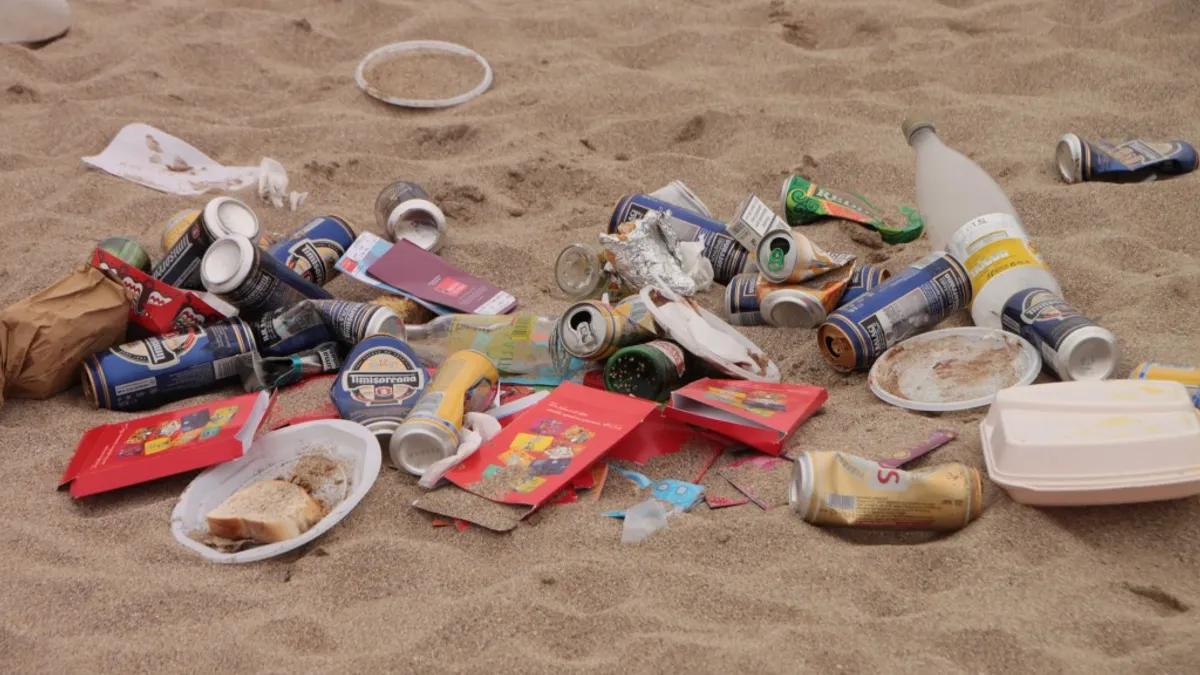Dive Brief:
- The Declaration of the Global Plastics Associations for Solutions on Marine Litter now has 65 signatories and 260 projects planned, in progress, or completed to combat plastic ocean pollution.
- Since launching in 2011, the group has grown to include plastic industry associations from 34 countries. In 2013, it joined the United Nations Environment Programme’s Global Partnership on Marine Litter.
- The group has broken its efforts down into six areas — education, research, public policy, best practices, recycling/recovery, and plastic pellet containment.
Dive Insight:
The marine litter crisis has been receiving attention from the fashion world, inventors, and government officials. And while involvement from the plastics industry is a positive step, a new UN report cautions that options such as biodegradable plastic may not be the answer. Littering education, while important, won't solve the problem either.
Based on the tonnage of plastic that is accumulating in oceans, it's clear that something is wrong with growing countries' collection and disposal infrastructures. A recent report from the Ocean Conservancy found that five countries account for 60% of marine plastics — China, Vietnam, Philippines, Indonesia, and Thailand. Unfortunately, these countries are underrepresented on the declaration's list of signatories and only 47 of the group's 260 projects are happening in Asia.
While Western countries rank better, they still have work to do as well. According to a 2015 study, the U.S. ranks 20th in terms of mismanaged plastic but produces more plastic waste overall than any other country on the list.















